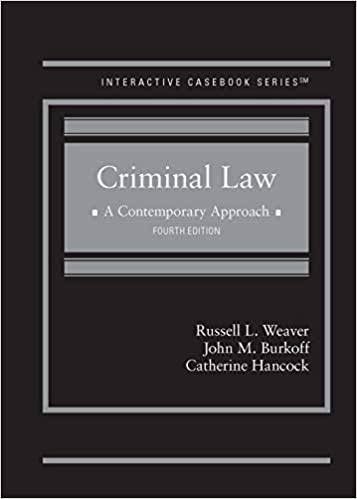Question
In 2004 Google began digitizing books in public and private libraries. Using high=speed cameras and optical character recognition, Google has scanned more than 12 million
In 2004 Google began digitizing books in public and private libraries. Using high=speed cameras and optical character recognition, Google has scanned more than 12 million books, delivering digital copies to libraries and making the text available for online searching through the Google Search engine. There are many societal benefits to Google's project - many more people have access to books than before, conversion to Braille and audio formats is easier and older books find new audiences. Millions of these books were still under copyright, and in 2005 a group of authors and publishers brought a class action suit against Google for copyright infringement.
Answer the following questions
- Do you believe Google's project is the equivalent of a modern-day library? Why or why not?
- How do you think the case should be resolved given the Constitution's Copyright Clause? The Constitution's Copyright Clause states (Article 1, Section 8 of the Constitution, known as the Copyright Clause) that Congress may "promote the Progress of Science and useful Arts by securing for limited Times to Authors and Inventors the exclusive Right to their respective Writings and Discoveries."
Step by Step Solution
There are 3 Steps involved in it
Step: 1

Get Instant Access to Expert-Tailored Solutions
See step-by-step solutions with expert insights and AI powered tools for academic success
Step: 2

Step: 3

Ace Your Homework with AI
Get the answers you need in no time with our AI-driven, step-by-step assistance
Get Started


